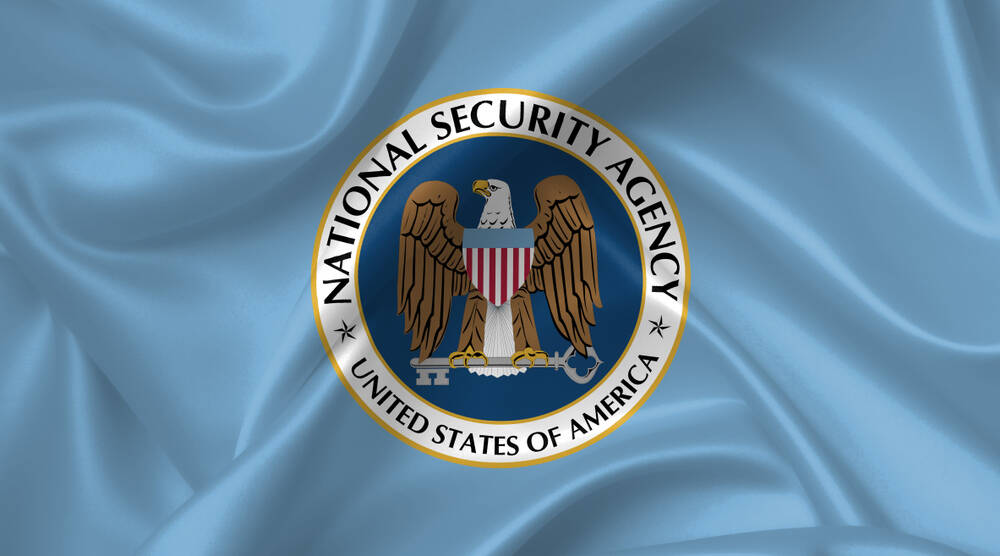Supreme Court Not Interested In Hearing About NSA's Super-snoop Schemes

America's Supreme Court has declined to hear Wikimedia Foundation's challenge of the NSA's "upstream" surveillance program, effectively exempting the agency's data collection from review as a state secret.
In 2015, two years after Edward Snowden's public disclosures about the NSA's network surveillance, Wikimedia Foundation, with eight other organizations and the help of the American Civil Liberties Union, sued the NSA and the US Justice Department alleging the bulk gathering of internet traffic violated Fourth Amendment protection against unreasonable search and seizure.
The NSA program is alleged to involve capturing all data entering and leaving the US via internet backbones. Captured packets get reassembled into transactions that get filtered for the presence of "selectors" (e.g., email addresses) associated with surveillance targets and those transactions then get ingested into a system for review.
- Months after NSA disclosed Microsoft cert bug, datacenters remain unpatched
- IPv6 for Dummies: NSA pushes security manual on DoD admins
- Should Google location data be a tool for cops?
- We're just shouting into the void, says US watchdog offering cybersecurity advice
The Wikimedia Foundation et al. argued that the NSA's warrantless surveillance program, which the government contends is authorized under Section 702 of the Foreign Intelligence Surveillance Act, is unlawful because it permits surveillance of US persons' international communications without a warrant or the approval of a public court, provided targeted individuals are located outside the US, but the kicker is that they can backtrace calls to associates who may have committed no crime.
Shortly after reports based on Snowden's leaked documents revived interest in network data security, the US Director of National Intelligence published a letter [PDF] that asserts NSA surveillance operates lawfully. "Collection of intelligence information under Section 702 is subject to an extensive oversight regime, incorporating reviews by the Executive, Legislative and Judicial branches," the DNI letter said.
US courts, however, have declined to hear challenges to that claim.
The district court hearing the case initially dismissed the lawsuit for lack of standing, though Wikimedia Foundation insists its data was captured by the NSA program. The Fourth Circuit Court of Appeals subsequently vacated that ruling: It found Wikimedia Foundation's assertion that its data had been vacuumed up plausible enough to allow the case to continue and remanded the case back to the district court.
The district court then authorized the legal discovery process and the Wikimedia Foundation deposed an NSA witness to support its case. But the government moved to have the lawsuit dismissed based on its right to state secrets privilege and the district court granted the government's motion.
Upon appeal, two of the three appellate judges upheld the dismissal based on state secrets, while one dissented. A petition to have the full Fourth Circuit review the decision was denied, so the plaintiffs asked the Supreme Court to consider the case. That petition was denied on Tuesday.
"The Supreme Court's refusal to grant our petition strikes a blow against an individual’s right to privacy and freedom of expression — two cornerstones of our society and the building blocks of Wikipedia,” said James Buatti, legal director at the Wikimedia Foundation, in a statement. "We will continue to champion everyone’s right to free knowledge, and urge Congress to take on the issue of mass surveillance as it evaluates whether to reauthorize Section 702 later this year."
Section 702 will expire at the end of 2023 if not renewed by Congress, a matter currently under fervent discussion.
"Ten years ago, the government defended unconstitutional surveillance by saying it was necessary to 'balance' your right to liberty against their preference for security," said Edward Snowden, now a citizen of Russia, via Twitter. "The courts at the time viewed that skeptically. Under the new [Supreme] Court, lawless spying is no longer questioned." ®
From Chip War To Cloud War: The Next Frontier In Global Tech Competition
The global chip war, characterized by intense competition among nations and corporations for supremacy in semiconductor ... Read more
The High Stakes Of Tech Regulation: Security Risks And Market Dynamics
The influence of tech giants in the global economy continues to grow, raising crucial questions about how to balance sec... Read more
The Tyranny Of Instagram Interiors: Why It's Time To Break Free From Algorithm-Driven Aesthetics
Instagram has become a dominant force in shaping interior design trends, offering a seemingly endless stream of inspirat... Read more
The Data Crunch In AI: Strategies For Sustainability
Exploring solutions to the imminent exhaustion of internet data for AI training.As the artificial intelligence (AI) indu... Read more
Google Abandons Four-Year Effort To Remove Cookies From Chrome Browser
After four years of dedicated effort, Google has decided to abandon its plan to remove third-party cookies from its Chro... Read more
LinkedIn Embraces AI And Gamification To Drive User Engagement And Revenue
In an effort to tackle slowing revenue growth and enhance user engagement, LinkedIn is turning to artificial intelligenc... Read more

